Are you tired of sending reminders for rent payments each month? Crafting the perfect rent payment collection letter can make all the difference in maintaining a professional relationship with your tenants while ensuring timely payments. In this article, we'll uncover essential tips and a helpful template that you can easily adapt for your needs. So, let's dive in and simplify your collection process together!
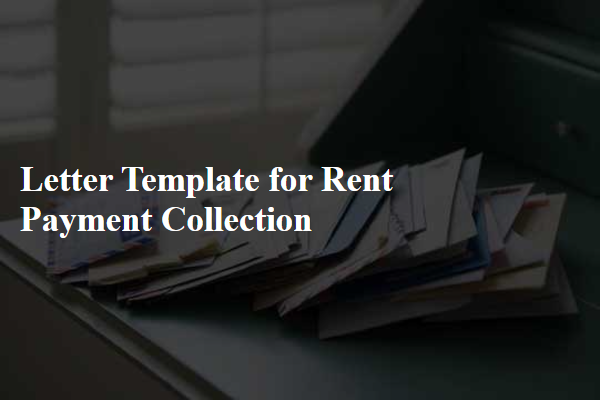
Polite and Professional Tone
Rent collection processes can involve various elements, such as due dates, payment methods, and reminders. Timely reminders can maintain a positive tenant-landlord relationship. A typical rental agreement may specify a monthly payment due on the first of each month. Various payment methods include bank transfers, online payment platforms like PayPal, or check payments. It's beneficial to reference local laws that govern late fees; in many jurisdictions, an initial grace period of five days is common. Maintaining professionalism in communication can foster prompt payments and minimize misunderstandings.
Clear Payment Instructions
Rent payment collection requires clear communication to ensure tenants understand the process. Landlords should specify the amount due, which typically includes base rent plus any additional fees (like maintenance or late charges). Payment deadlines should be stated, usually set for the first day of each month, with a grace period of a few days if applicable. Acceptable payment methods should be listed, including options like bank transfer, online payment platforms, or checks mailed to a designated address. Important contact information must be provided for any questions or payment issues, ensuring tenants have access to support. Clear reminders about consequences of late payments, such as eviction notices or penalty fees, should also be included to reinforce accountability. Regular communication can enhance tenant relations and improve overall payment compliance.
Due Date Emphasis
Rent payments play a crucial role in maintaining the financial stability of property management and ensuring timely operation of residential buildings. The due date, often the first of each month, highlights the necessity for tenants to submit their rent by this deadline to avoid late fees or potential eviction notices. Failure to pay on time can lead to negative credit impacts and strained landlord-tenant relationships. It is essential for tenants to understand the importance of adhering to these timelines to ensure their housing security and uphold their rental agreements, which typically specify the consequences of late payments. Communication regarding any changes or potential issues with payment should occur well before the due date to foster understanding and cooperation.
Consequences of Late Payment
Late rent payment can lead to serious consequences for tenants, including eviction proceedings initiated by property owners, which may arise after a grace period typically lasting five days. Unpaid rent can result in late fees, often ranging from 5% to 10% of the monthly rent amount, adding financial strain. Additionally, tenants risk damaging their credit scores, as landlords may report late payments to credit bureaus, impacting future housing opportunities. Legal fees may also accumulate for landlords seeking to enforce payment through court actions, further complicating financial situations for tenants in arrears. Each lease agreement outlines specific penalties that may be enforced, emphasizing the importance of timely rent payments to maintain a good standing and prevent escalating issues.
Contact Information for Assistance
For any inquiries related to rent payment collection, residents are encouraged to reach out to the property management office located at 123 Main Street, Springfield. The office can be contacted via telephone at (555) 123-4567 during business hours, which are Monday through Friday from 9 AM to 5 PM. Alternatively, residents may send an email to support@springfieldproperties.com for assistance with payment options, late fees, or any other concerns. Prompt communication is essential to ensure timely resolution of issues and to maintain a positive rental experience.

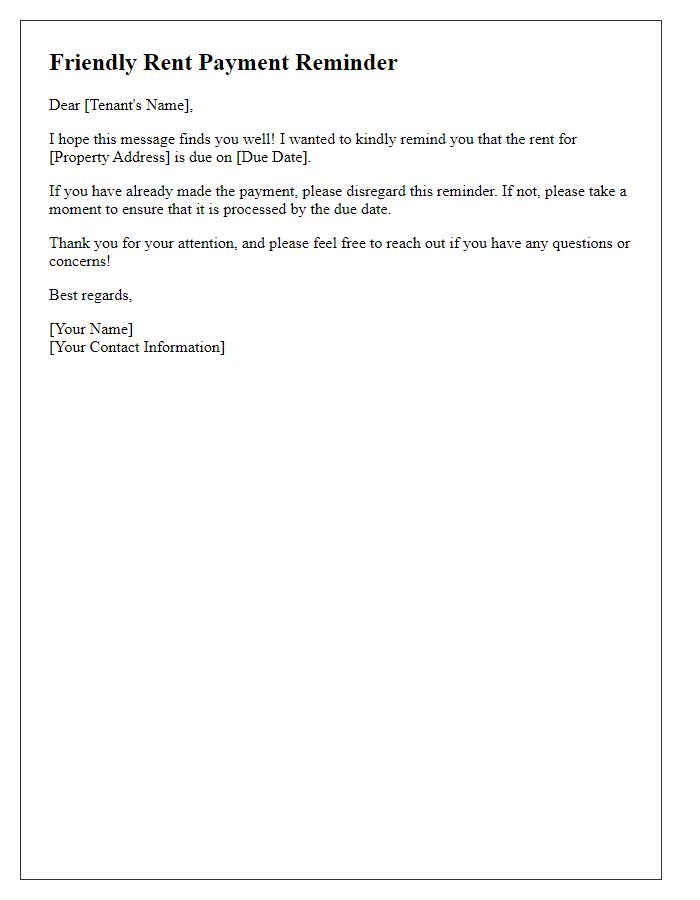
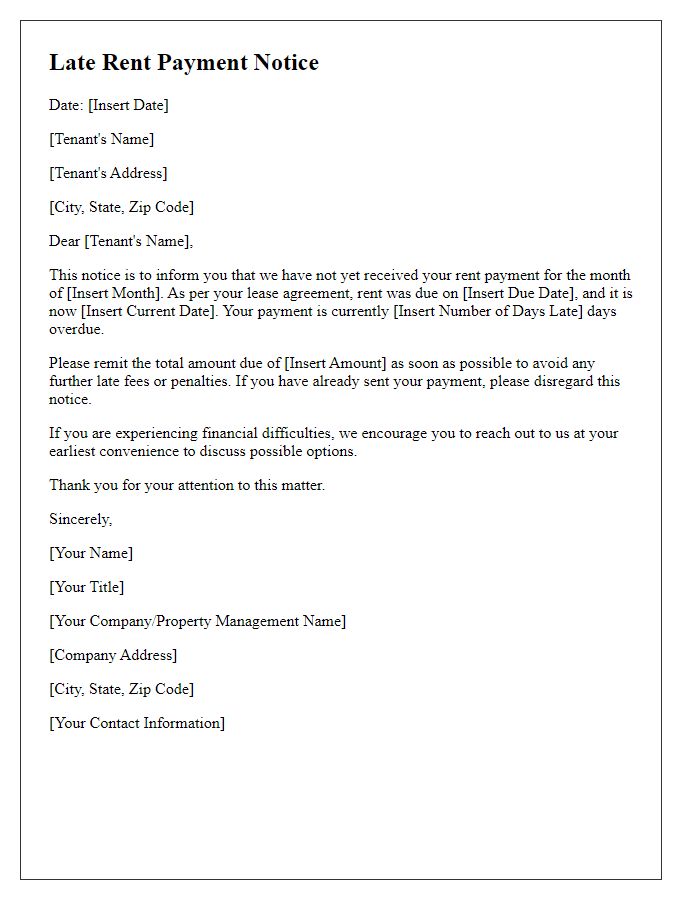
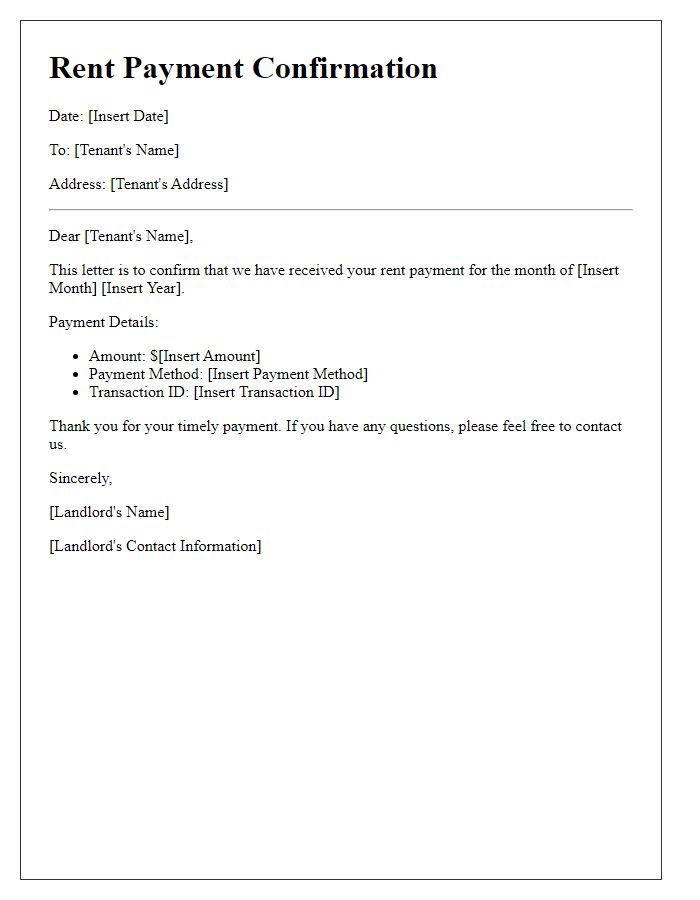
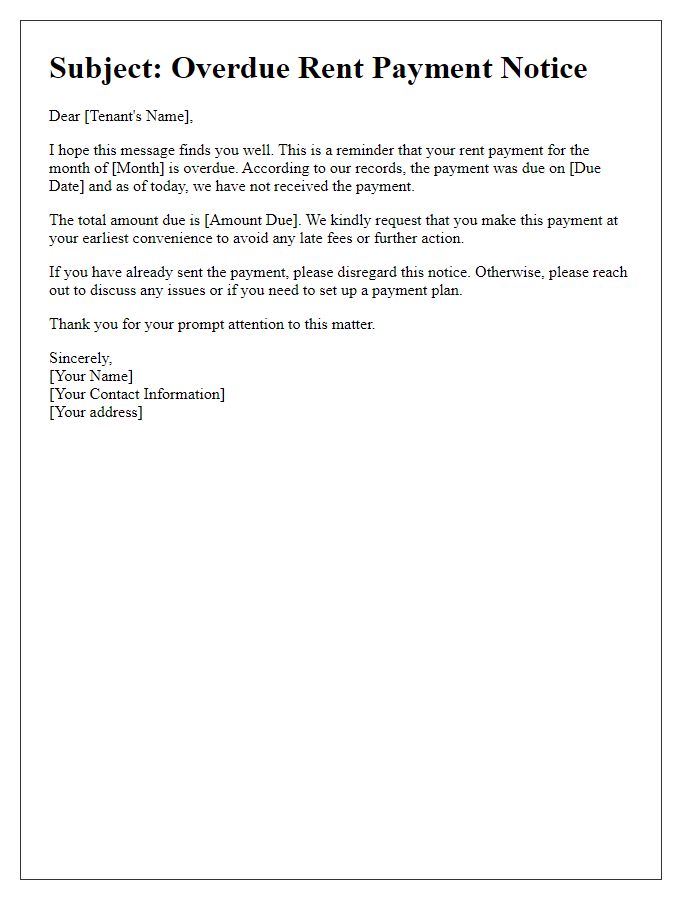
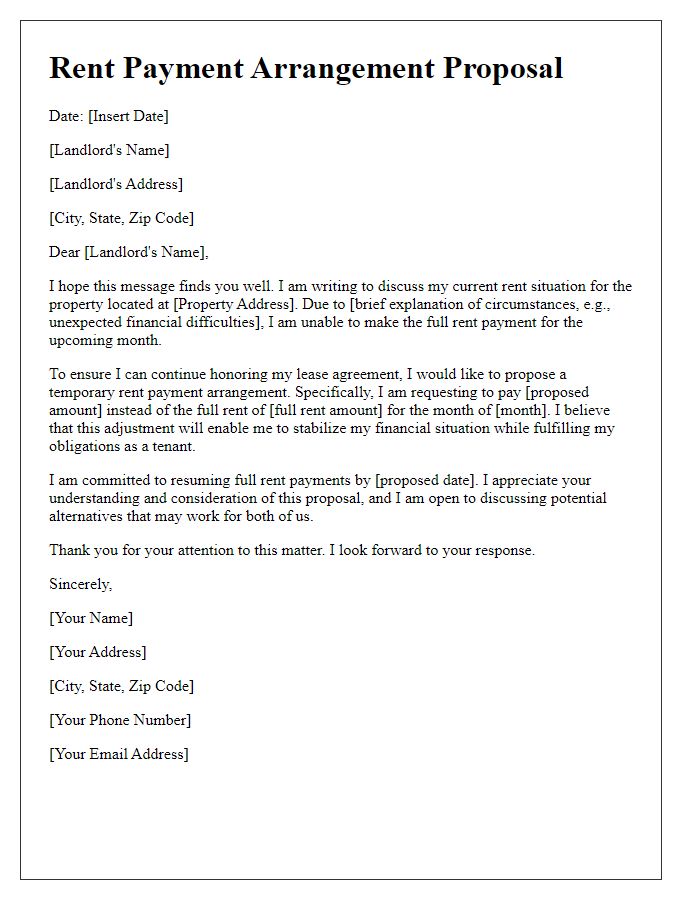
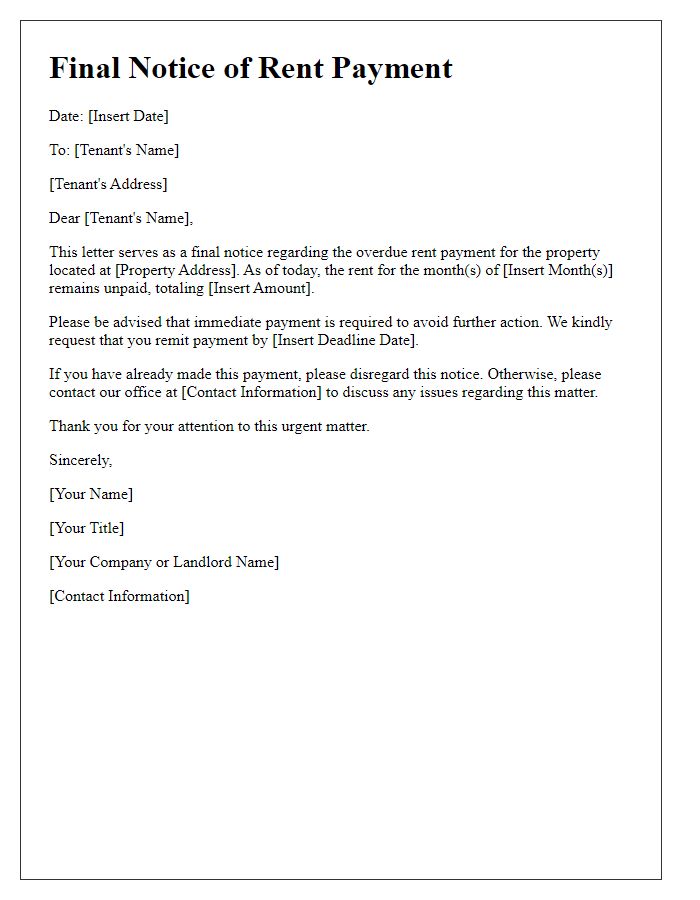
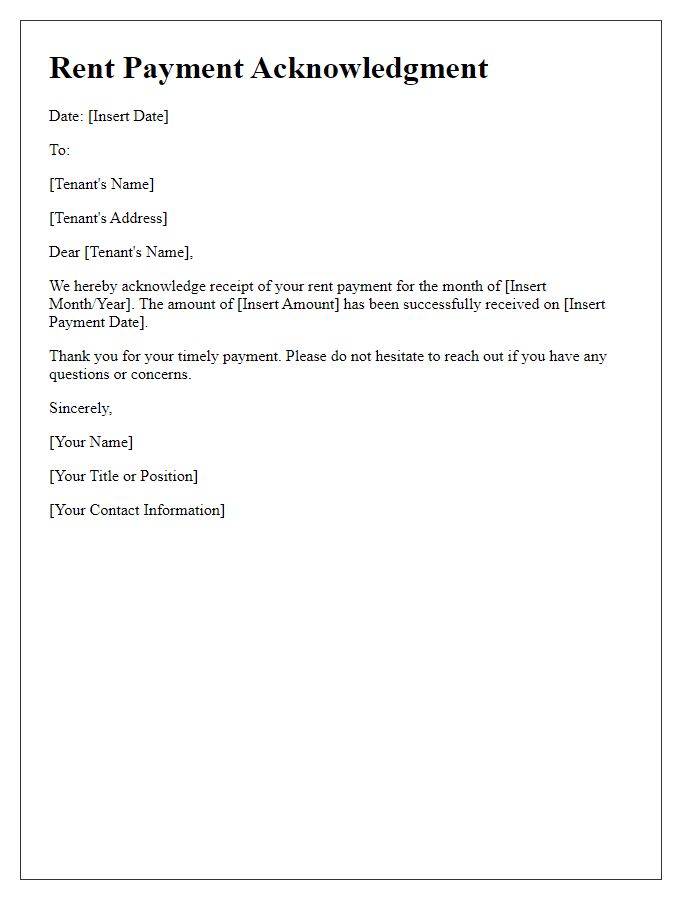
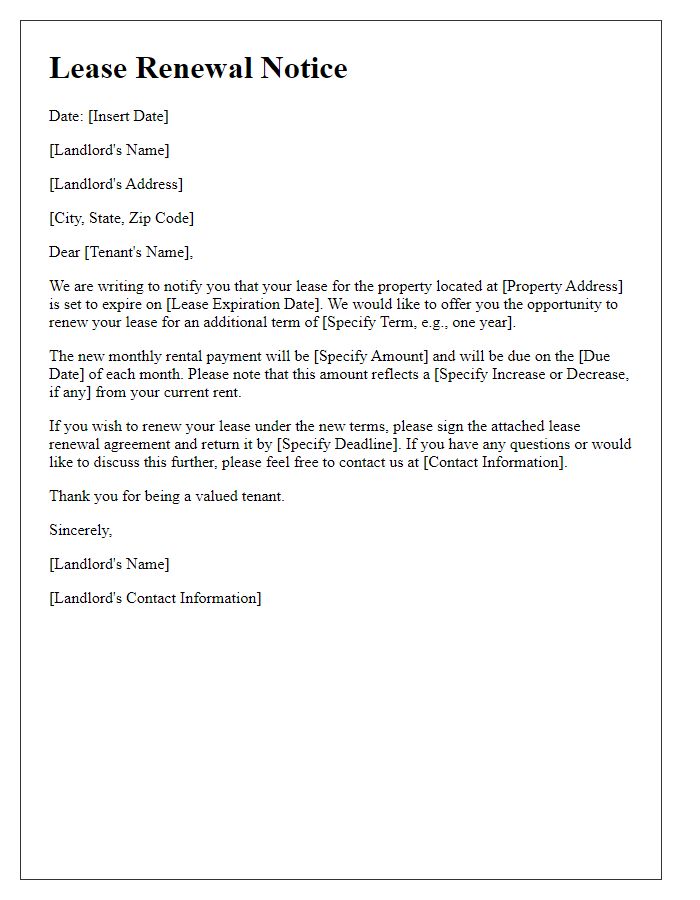
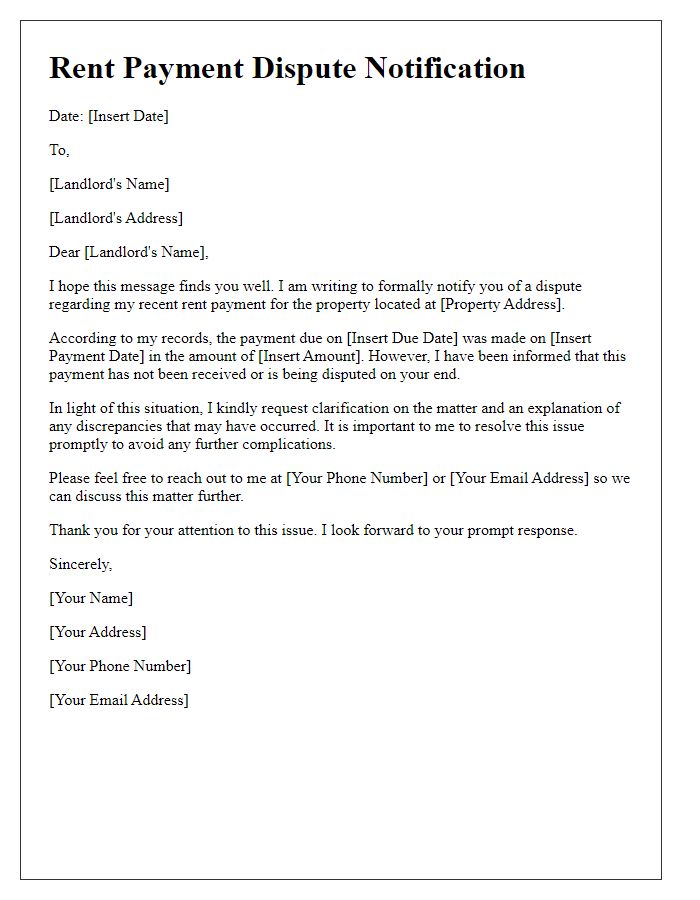
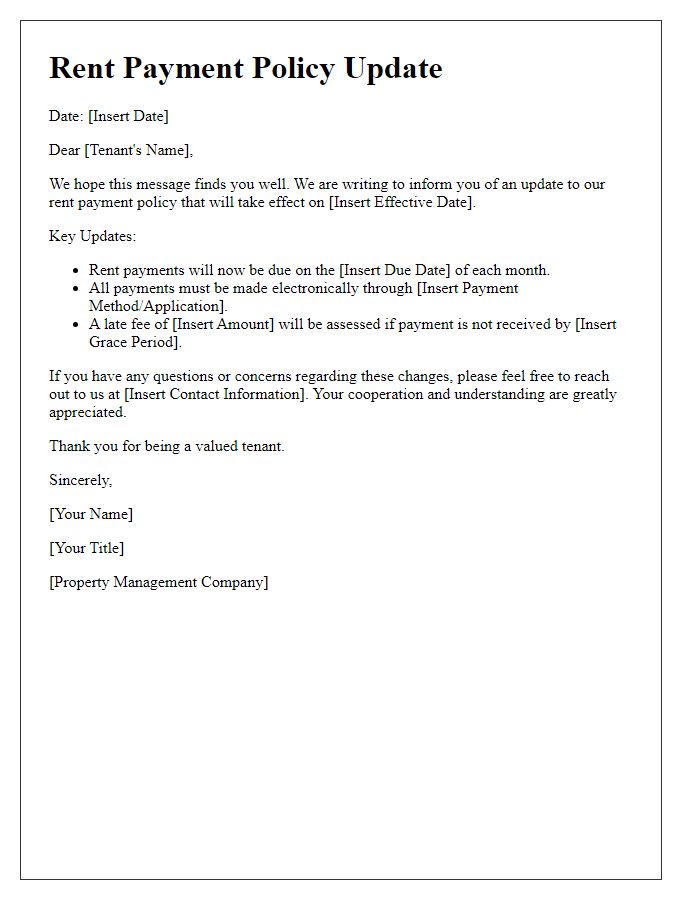


Comments